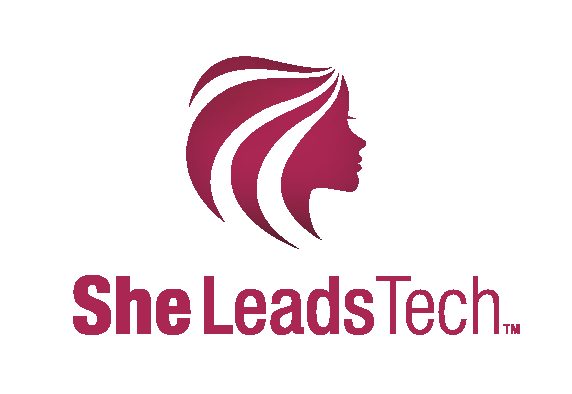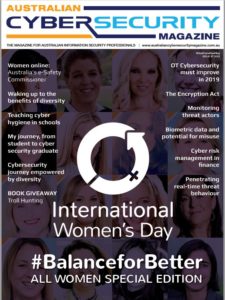
 Women globally are still striving for fully equal pay and opportunity in the workplace, despite the best efforts of some visionary organisation leaders.
Women globally are still striving for fully equal pay and opportunity in the workplace, despite the best efforts of some visionary organisation leaders.
The notion of gender equality across the workforce may be something that is now taken for granted by a great many people in western democracies, and even in a number of developing countries, but, as one CEO discovered, the road to full equality has been laden with bumps and cracks.
Speaking at ‘#BalanceForBetter’, ISACA Sydney Chapter’s International Women’s Day event held on Friday March 8, keynote speaker Stuart Irvine, the chief executive officer of global food and beverage manufacturer Lion, says achieving real equality is the most honourable goal a leader can have. However, such things are never simple to achieve in reality, especially in traditionally male-dominated businesses such as beer brewing, and in areas such as the sciences and information technology.
Stuart, who was previously CEO of Nestle for Eurasia and Russia, has an extensive background in global leadership roles so his insights were illuminating for the large audience attending the event.
In a sales career stretching over 30 years, Stuart describes his first position at Procter & Gamble in Scotland in the late 80s, where he had a female sales manager, something which was a considerable rarity at the time. “She may not have been a unicorn, but she was definitely of the unicorn family,” he says. “The other thing that struck me was just how much more she had to do to prove herself compared with her male colleagues.”
Working for her was inspiring, he adds, because of the level of dedication she applied to her work and her exceptional leadership skills, despite the fact that she was regarded as something of a novelty by many of her peers.
“From that moment on I’ve always believed that organisations are missing out on vast amounts of talent by being so narrow minded about gender and other factors such as ethnicity when it comes to leadership. As I’ve gone on to manage larger groups of people I realise we have to go beyond expectations to achieve full equality, regardless of what resistance we may encounter along the way.”
Learning from the past
When Stuart took over Lion in 2013, the company had been working for over 20 years on its culture and there were already a number of systems in place for measuring things such as sociability and engagement.
“Behaviours and results were carefully measured so we thought our culture was very strong. We were holding presentations on diversity, and we had better than average parental leave,” he says.
“We thought we were on the edge of diversity at the time. However, when we looked at leadership it became obvious that there really wasn’t much diversity at all. Most of the leadership roles were occupied by 40-something white men, and over the first couple of years that I was there not much changed in that regard,” he says.
Also, at the end of 2015, the debate about pay equity came to the fore. “We firmly believed that we were a meritocracy, that we were totally fair in our dealings with all our employees and that there were no gender discrepancies when it came to pay and conditions.”
However, when out of sheer curiosity Stuart directed his CFO to look at all roles and their accompanying pay, they found a 3.2 per cent discrepancy in wages. “That, for me, was a shocking moment. I believed that everyone was being treated equally but it became clear that there were ingrained biases in our system.”
Initially Lion’s leadership needed to work out how that anomaly had occurred, and much of it was simply due to the nature of the labour market. “Men traditionally press for more at the interview stage whereas women are more content to take what is being offered,” Stuart says. “A simple thing like placing a dollar amount on our adverts means that’s the amount we are paying and no correspondence shall be entered into, removing the possibility of that particular discrepancy arising again.”
Having established that, the next question was what to do about it, he says. “I wanted it fixed straight away. We discovered there were 400 men not being paid correctly and 1200 women not being paid correctly, which led to the board approving a one-time corrective payment of $6 million over one year, he says.
The next initiative involved setting a target of 50/50 by 2026 across every division of the company, which involved equal representation as well as pay. “For this to be real it has to work across every division of the company,” he says. “If we have 50 per cent of our marketing or sales roles filled by women but a much smaller percentage in leadership roles that’s not real equality and there’s no economic balance. The real magic happens when you have true diversity across your organisation.”
More changes
Lion has also made changes at the hiring point and through sponsorship, and actively encourages female applications for its jobs, Stuart says, though it is still proving difficult to get 50 per cent of applicants from women for some positions, given the nature of the beer business.
Lion also has real flex-time arrangements in place now, whereas previously it had been flex by name but not by nature. “It’s a big change in policy and it allows women to leave at 3pm, for example, to pick up their kids. It also gives staff the option to work from home on some days, and those employees that use flex are more engaged, our research shows.”
Looking to the future
Achieving the ideal 50/50 figure can, Stuart says, be likened to a giant wheel turning extremely slowly but gradually gathering momentum. “We have seven years left, so we have to pick up speed,” he adds.
New initiatives will involve leadership courses that include inclusivity as a core company value and an increased focus on ethnicity. “It doesn’t just end with gender. Our customer base is becoming increasingly diverse so we need to represent that internally as well. As someone rightfully pointed out to me, we need to do a lot more than offer the same opportunities just to white women.”
Finally, Stuart says, the quest for finding great women to fill vacancies across the organisation and make it truly balanced will involve “simply going out there and telling our story in forums such as this and keeping the issue front and centre of all our thoughts and actions”.
By Alan Hartstein, ACSM Correspondent
MySecurity Media are proud ISACA Sydney Media Partners – to join ISACA or learn more visit www.isaca.org






